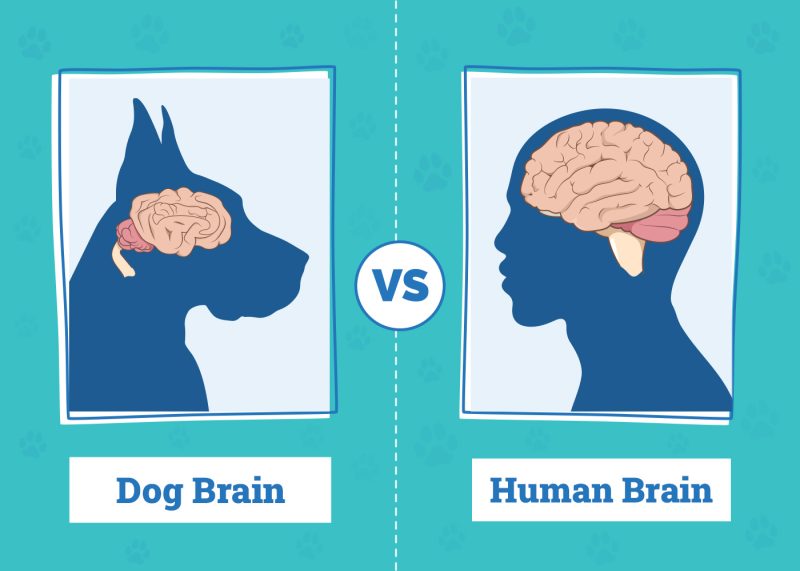There are many good reasons to own dogs. They’re cute and fun and they provide companionship. You may have heard that owning a dog can make you live longer, but how true is this? Do dog owners live longer? Unfortunately, there is little to no scientific evidence that dog ownership has any legitimate influence on mortality rates. In other words, there’s no data to back the claim that dog owners live longer but there are benefits to having one.
According to some people, dogs can extend our lives by improving our physical, cardiovascular, and mental health. Several studies appear to support these claims, with some showing that dog owners have lower fatality rates than those with no dogs. However, most of these studies involved statistical analysis that overlooked some key variables, including race, gender, age, lifestyle, and socio-economic status. A meta-analysis by Psychology Today put the data in context with the world at-large, and the conclusions of these studies fell apart.1
Below, we will look at some of the key findings of these studies, and learn more about the health benefits of owning and keeping dogs, and how a canine companion could help improve your life.

The 10 Health Benefits of Having a Dog
1. They Provide Companionship
Dogs offer unconditional love. They can also be empathetic and provide affection and support when it’s needed. For those who live alone, having this support can help stave off loneliness while also giving a reason to get up and move around.
Loneliness is a major cause of depression,2 so any steps that people can take to prevent it are beneficial.

2. They Can Reduce Stress
There’s a reason that therapy dogs are used in hospitals, care homes, and other facilities around the world. Caring for a dog can help reduce stress because it gives people a reason to get up and do things.
Even the rhythmic petting of a dog can help reduce stress levels and prevent anxiety.3 It lowers blood pressure, slows the breathing rate, and even helps unknot stressed muscles. All these benefits add up to reduce cortisol, which is known as the stress hormone.
3. They Can Contribute to Improved Cardiovascular Health
Dogs help reduce stress levels and increase physical activity. Both of these can improve cardiovascular health and reduce the risk of suffering heart-related conditions. Even talking to your dog can help reduce anxiety, and you can enjoy the knock-on effect of better heart health. Studies back this up, showing that dogs can improve heart health in owners.4

4. They Can Help Combat PTSD
Dogs help us cope with difficult situations, and they have been used to help veterans with PTSD. In studies, veterans with PTSD were better able to cope if they had a service dog, as opposed to those with no dogs.5 Your dog can help you cope with difficult situations at home too.
5. They Can Lead to Improved Physical Health
You might be surprised at how far you actually walk when taking your dog out. Start a step tracker or health app when you head out and take a look.
I walk between 8,000 and 10,000 steps a day with my dog, which is roughly 4 or 5 miles. That’s 4 or 5 miles a day that I wouldn’t be walking if I didn’t have her. It’s also around the total distance that we are told we should be walking every day. Walking is not only good for the heart, but it also strengthens and maintains muscles and keeps the joints moving, which is not only important as you’re aging, but it’s also a means of preventing certain conditions.
With the right dog, you could even advance from walking to jogging or take up a canine sport that gets both of you moving more.

6. Dogs Can Help Us Lose Weight
Getting out and walking more is one way to help lose weight. The most effective weight loss plans combine calorie-controlled diets with exercise. The exercise doesn’t have to be high-intensity exercise, although walking at a brisk pace is more effective than walking at a casual pace.
Get a dog that likes walking or even one that can partake in canine sports, and get your sneakers on!
7. They Enhance Our Attractiveness
Not only do dogs directly help combat loneliness, but they also do it indirectly. Dog owners are more likely to meet new people, and studies show that dating profiles that include a picture with a dog improve the chances of prospective partners matching with them. Similarly, people with pets in their photos are shown to be more appealing to potential partners.

8. Dogs Improve Sociability
I sit at home working most days. I don’t meet people at work, so walking Tula is a twice-daily relief. It not only gets me out of the house and into fresh air, but it also means I meet other dog walkers and other people. We strike up conversations about our dogs and pleasantries about the weather and what’s happening in our local town. While it might not seem much, this small amount of social interaction can turn a mundane day into a more enjoyable one.
Dog ownership has led to friendships and even partnerships being formed for millions of people. Organized dog walks, puppy training classes, and time in the local dog park are all opportunities to meet other people: those you have at least one thing in common with.
Even if you don’t strike up new friendships with the people you meet when walking, you will enjoy more social interactions over the day, and social interactions are good for people.
9. Dogs Make Us Care More
Dogs have facial features that apparently make people more caring, which means there is a scientific reason you want to approach and love dogs when you see them. This caring response not only counts for the dogs but also carries through into the rest of our lives, so dog owners tend to be more caring than people who don’t own dogs.

10. Dog Owners Have Lower Mortality Rates
According to several studies, dog owners had lower mortality rates than people who didn’t own dogs, which suggests that you are likely to live longer if you own dogs.

Conclusion
Owning a dog isn’t the right choice for everybody. People with allergies or with inappropriate lifestyles, for example, won’t benefit from having a dog in the same way as others. But for some people, owning a dog can improve their physical and mental health. It can also help forge friendships and create social connections with people around them.
The physical exercise involved in owning a dog can improve heart health, reduce stress, and help with weight loss. Dogs are also shown to be effective at reducing stress and anxiety levels. Before getting a dog, do ensure that it is the right lifestyle choice for you and the rest of your family, though.
Featured Image Credit: Alina Kruk, Shutterstock




















